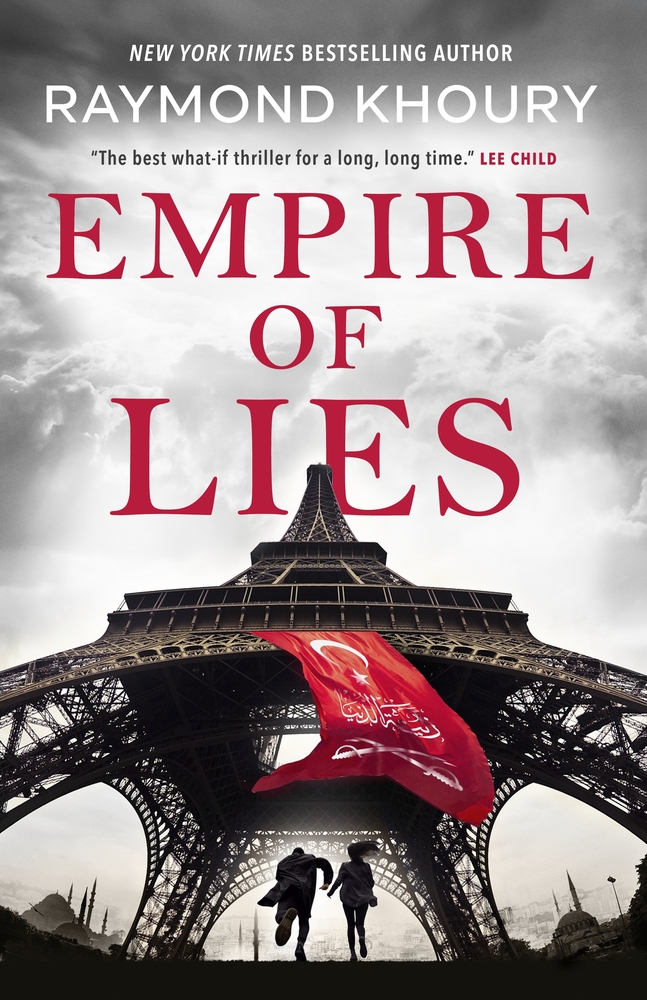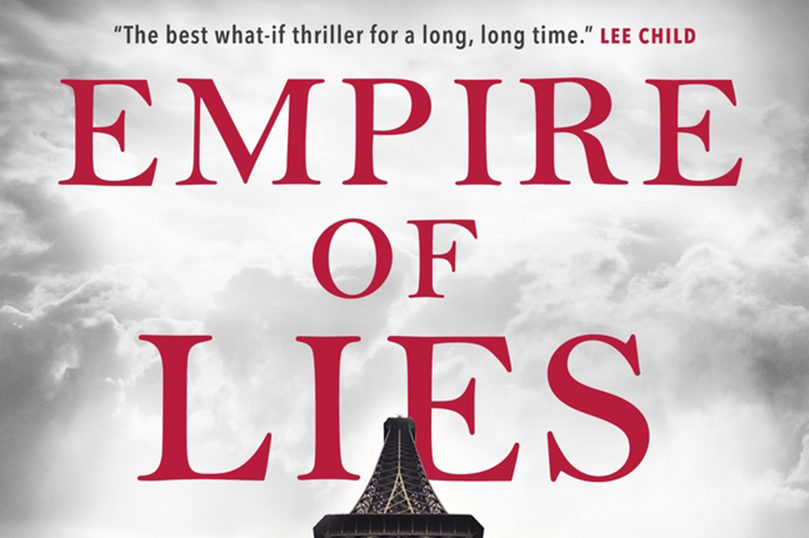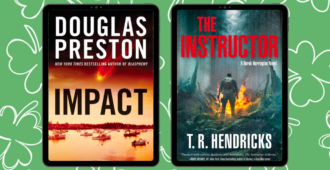What would it take to change history?
In Empire of Lies, a sweeping thriller in the tradition of The Man in the High Castle, Raymond Khoury explores a world like and unlike our own, all based on a wild historical ‘What if?’: What if the Ottoman Empire survived one fatal mistake in 1683? What if it were the world’s biggest superpower today?
Empire of Lies is now available in paperback!
By Raymond Khoury
 In terms of days that could have changed history, Sept 12, 1683 ranks pretty high up there.
In terms of days that could have changed history, Sept 12, 1683 ranks pretty high up there.
On the 14th of July 1683, an army that stretched for six miles—the largest army the world had ever seen—finally crossed the Danube and took up position around its target: Vienna, the capital of the Holy Roman Empire. The Habsburg emperor, along with his court and over fifty thousand of his citizens, had already fled the city, while terrified farmers and villagers had flocked in in their place, seeking safety behind its fortified walls.
All summer, fierce fighting raged along the city’s fortifications, the sultan’s sappers digging tunnels and exploding mines under its walls while his artillery pounded its heavily outnumbered, starving and diseased survivors. One of the most ferocious, blood-soaked sieges in history finally came to an end on the morning of September 12, when a relief army, put together by the pope and led by the King of Poland, rode in and saved the city. It was the beginning of the end of the Ottoman Empire.
But what if the sultan’s men had exploded that final mine at dusk on September 11, as they’d debated, and not waited until the next day—by which time it was too late? The city would have fallen. And with it, potentially, the rest of Western Europe.
The last three centuries of history, as we know it, would have changed in ways we can only imagine—which, to an author of fiction, is an irresistible proposition. The question is: how might it have changed? And what would the world look like today, if it had?
I had initially pictured my 21st century, present-day Ottoman Europe to be a bit like the crumbling USSR of the 1970s and 1980s, left behind by the more technologically advanced and modernizing, open societies of the West. But I quickly realised it would be far more interesting, and relevant, to go down a different path: make it modern, make it the world’s leading superpower, but give it the worst aspects of our present-day Western world: let it be suffering under a rise of demagogues, intolerance, nativism, state surveillance, the crumbling of free speech, the eroding of hard-won attitudes towards others and towards the environment, and the blatant prevalence of lies.
So my Ottoman Europe of 2019—and, specifically, Paris, where most of the story is set—is different from the Paris we know in that while it looks and feels more like present-day Istanbul, Tehran or Jeddah, a closer look would reveal that the main issues facing its people aren’t that different from those we face in the US or in Europe today.
The challenge in all this, however, was to make it believable. How would the Ottomans have not just conquered, but held onto, Western Europe? Militarily, logistically, politically—it all needed to be researched heavily and mapped out credibly, drawing on the advice of as many expert Ottomanists and historians that I could reach.
This was the easier task, as it involved tactics and strategy: how to exploit the weaknesses of a strongly-divided Europe at the time; where and when to strike at Rome and Paris; how to set up supply lines to keep a massive army fully functional when it’s thousands of miles away from its home; how to control conquered, occupied populations. For all these matters, I could turn to our history and study how it had been done, or at least, attempted; sadly, our history has no shortage of such tragedies, right up to our present time.
Beyond the strategic questions lay the bigger, longer-term issues: how would they have dealt with the Enlightenment that had just begun, the burgeoning aspirations of freedom and equality? How would they have thwarted the inevitable rise of nationalist thinking that our world witnessed in those centuries? Would the big, world-changing revolutions—American, French, Russian—have still happened? And how would all the technological advances we’ve seen have affected the empire’s evolution? Would they have allowed the internet?
Although the Ottoman Empire lasted until shortly after the end of World War I, I couldn’t really model my version of it on anything we know about its last three centuries or so, simply because after its defeat outside the walls of Vienna in 1683, the Ottoman Empire began to weaken and fall behind while Europe did go through all of the above—the Enlightenment, various revolutions that would topple monarchies, and the Industrial Revolution. In our real history, the Ottoman Empire spent its last three centuries playing catch-up, falling behind while desperately trying to implement various reforms that mimicked what was happening in the West. I couldn’t use any of that since, in my world, the Ottomans conquered Europe long before any of these monumental events took place. My Ottomans would be the standard bearers. They’d be the ones forging history, setting the example and laying down the rules. There was no Europe for them to mimic—they had conquered it.
I’d have to start from scratch.
But not completely from scratch. Because I did have a secret weapon. A guru, a covert advisor, a highly-educated, well-read expert on manipulation who knew everything about our history and would put all that knowledge to use in helping the sultan and his successors conquer—and hold—all of Europe.
This wasn’t a historian I managed to get through to; it wasn’t some secret government agency official I had access to. No, this was Ayman Rasheed, a figment of my imagination, a character I created for the book. A character who, in a world-shattering twist of fate, discovered something in a crypt under an ancient temple in Palmyra, in present-day Syria. Something that would allow him to go back and change history and mould it to his liking. Someone who would deploy all the foresight of a time traveller to guarantee the empire’s technological supremacy by grabbing inventors and visionaries before they made their great discoveries, someone who would defuse potential threats before they could materialize by sending out assassins to kill great thinkers in their infancy, before they could change the world with their words and their writings.
In other words, one hell of a fun character to create.
The possibilities were mind-boggling—but huge fun to imagine. I hope you enjoy them too.
Order Your Copy:











